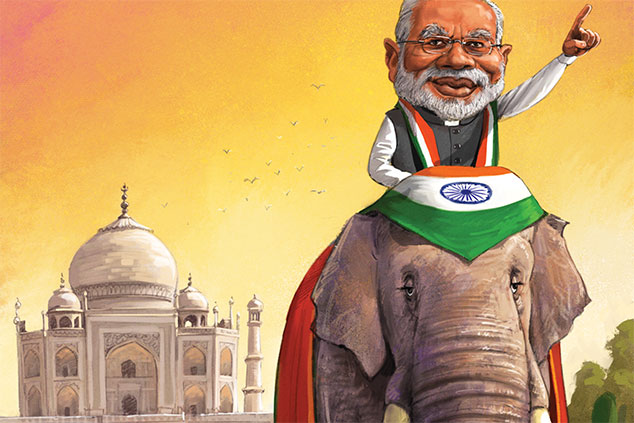
India looks ready to fulfil its long-term potential, says Rupert Foster, while Cris Sholto Heaton examines short-term risks in the financial sector and highlights the best investment trusts.
India is a vast patchwork of languages, ethnicities and cultures with 1.3 billion people spread over three million square kilometres. One of its 29 states is Gujarat, which by 2014 had become an emblem of economic liberalisation in a country making little overall progress in this direction. In May of that year Narendra Modi, who had been Gujarat’s chief minister for 13 years, won a national election with his BJP Party, replacing the Congress Party, which had led India for a decade.
Local and global investors, hoping Modi would replicate his success with Gujarat at the national level, piled into equities. Mumbai’s Sensex index rose by 50% in 2014. Foreign investors have continued to flock to India since then, counting on structural reform to cement rapid and sustainable growth. India has indeed made impressive progress in the past few years, and is on track to oust the UK from its position as the world’s fifth-biggest economy this year. It is now contributing as much to world GDP growth as the UK, France and Germany combined.
However, 2018 has not been a good year for emerging markets. The Indian rupee has slipped by 15% against the US dollar this year and Indian stocks are down 10%. In addition, the next national election takes place in May 2019. Currently, opinion polls point to Modi keeping his majority but with much reduced size. Will the Indian government start handing out economic bribes, such as further subsidies on ever more expensive oil, as it has in the past?
If so, will such policies knock India off course, or have the reforms of the last few years established an enduring virtuous circle fuelled by a vast cheap workforce with wonderful demographics, an excellent education system, solvent banks and the productivity improvements that technology will bring? Now seems a good time to reassess the outlook.